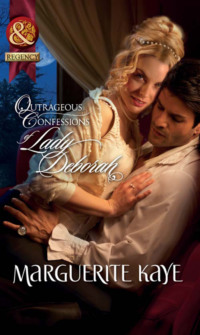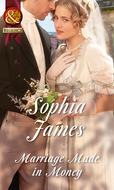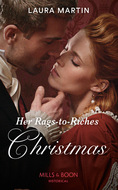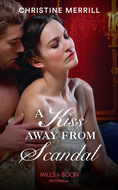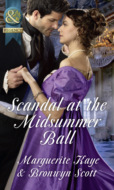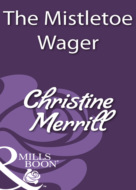Książki nie można pobrać jako pliku, ale można ją czytać w naszej aplikacji lub online na stronie.
Czytaj książkę: «Outrageous Confessions of Lady Deborah»

Praise for Marguerite Kaye:
‘Kaye delights readers with a heated seduction and fiery games that burn up the pages when her heroine takes
THE CAPTAIN’S WICKED WAGER.’
—RT Book Reviews
‘A spellbinding Regency romance with a difference,
THE GOVERNESS AND THE SHEIKH
is another winner for Marguerite Kaye!’
—Cataromance
‘Kaye closes her brilliant Princes of the Desert trilogy, in which Regency Roses meet and fall in love with desert sheikhs. Book Three is irresistible, with its fantastical kingdom, all-powerful prince and the allure of the forbidden. Sensual, ravishing and funny. A must for all lovers of sheikh romance.’ —RT Book Reviews on THE GOVERNESS AND THE SHEIKH
‘If I take you, it will be because I want to.’
The words made Deborah shiver. Did he want her? Want her? No one had ever wanted her like that.
‘And do you—want me?’
Looking round swiftly, to check they were quite alone, Elliot pulled her to him, a dark glint in his eyes. ‘You are playing a very dangerous game, Deborah Napier. I would advise you to have a care, for if you dance with the devil you are likely to get burnt. You may come with me, but only if you promise to do exactly as I say.’
‘You mean it!’ Oh, God, he meant it! She would be a housebreaker. A thief! ‘I’ll do exactly as you say.’
‘Then prove it. Kiss me,’ Elliot said audaciously, not thinking for a moment that she would.
But she did. Without giving herself time to think, her heart hammering against her breast, Deborah stood on tiptoe, pulled his head down to hers, and did as she was bade. Right there in Hyde Park, in the middle of the day, she kissed him …
About the Author
Born and educated in Scotland, MARGUERITE KAYE originally qualified as a lawyer but chose not to practise. Instead, she carved out a career in IT and studied history part-time, gaining a first-class honours and a master’s degree. A few decades after winning a children’s national poetry competition she decided to pursue her lifelong ambition to write, and submitted her first historical romance to Mills & Boon®. They accepted it, and she’s been writing ever since.
You can contact Marguerite through her website at: www.margueritekaye.com
Previous novels by the same author:
THE WICKED LORD RASENBY
THE RAKE AND THE HEIRESS
INNOCENT IN THE SHEIKH’S HAREM† (part of Summer Sheikhs anthology) THE GOVERNESS AND THE SHEIKH† THE HIGHLANDER’S REDEMPTION* THE HIGHLANDER’S RETURN* RAKE WITH A FROZEN HEART
and in Mills & Boon® Historical Undone! eBooks:
THE CAPTAIN’S WICKED WAGER
THE HIGHLANDER AND THE SEA SIREN
BITTEN BY DESIRE
TEMPTATION IS THE NIGHT
CLAIMED BY THE WOLF PRINCE** BOUND TO THE WOLF PRINCE** THE HIGHLANDER AND THE WOLF PRINCESS** THE SHEIKH’S IMPETUOUS LOVE-SLAVE † SPELLBOUND & SEDUCED
† linked by character *Highland Brides **Legend of the Faol
Did you know that some of these novels are also available as eBooks? Visit www.millsandboon.co.uk
Outrageous
Confessions of
Lady Deborah
Marguerite Kaye

MILLS & BOON
Before you start reading, why not sign up?
Thank you for downloading this Mills & Boon book. If you want to hear about exclusive discounts, special offers and competitions, sign up to our email newsletter today!
Or simply visit
Mills & Boon emails are completely free to receive and you can unsubscribe at any time via the link in any email we send you.
Prologue
The murals were surprisingly well executed. Whoever had commissioned them certainly had eclectic taste, for Dionysius practiced his arts on one wall, with Sappho adjacent, and a selection of rather graphic and—in his lordship’s opinion—physically impossible combinations of male and female were portrayed opposite. Upon the fourth wall was painted a rather interesting triumvirate which Charles Mumford, Third Marquess of Rosevale, would have liked to explore further. His current position, however, made this rather difficult.
‘For pity’s sake, Bella, have mercy, I beg of you.’ The Marquess was a man most unused to pleading. In the normal run of things it was his expectation—indeed, he believed it was his inalienable right—to have his every instruction obeyed instantly. But the situation in which he currently found himself could by no stretch of the imagination be described as normal.
For a start he was trussed like a chicken, bound hand and foot to the ornate canopied bed in the centre of the room. His shirt having been ripped open and his breeches roughly pulled down, he was also shockingly exposed, excitingly vulnerable, from his neck to his knees.
Then there was the fact that he was being coolly appraised by quite the most exotic and alluring creature he had ever clapped eyes upon. Clad in a black velvet robe with a décolleté so daring it seemed to be held in place only by the sheer power of her considerable will, she was the stuff of every red-blooded man’s fantasy. Dark silken tresses tumbled down her back. Her skin was the colour of whipped cream. Her lips were full, painted harlot red. Her countenance sultry. The black stock of the cat-o-nine-tails she stroked was thick and weighty. She was, overall, a perfect combination of the voluptuous and the vicious, which sent the blood surging to the Marquess’s most prized piece of anatomy. Charles Mumford groaned. Whether in trepidation or anticipation only he could truly know.
Bella Donna allowed her eyes to wander languidly over the body of her captive. Despite the undoubted fact that he was an insufferable prig, more than deserving of whatever punishment she decided to mete out to him, the Marquess was a prime physical specimen, his lightly muscled body testament to his fondness for the noble art of fencing. A sheen of sweat glistened on his torso as he fought to free himself from his constraints. The muscles in his arms bulged like cords as they strained against the knots she had so expertly tied. A spattering of dark hair arrowed down from his chest, over the flat plane of his taut belly, and down. Bella’s eyes widened as she followed its trail. His reputation was indeed well deserved. She flicked her tongue slowly over her rouged lips. Dispensing punishment did not preclude an element of pleasure. Especially hers.
Bella drew the whip slowly down the Marquess’s body, watching his skin quiver as the leather thongs slid over him, giving his twitching member an expert and playful little tug.
His Lordship groaned. ‘Devil take you, release me.’
Bella laughed. ‘In your world your word may be law, but you are in my world now. The dark and erotic world of the night, where I am queen and you are my subject. I will release you when I have done with you and not before.’
‘Curse you, Bella! Deadly Nightshade! You are well named. What have I done to deserve this?’
‘You are a man. That is crime enough,’ Bella hissed, noting with satisfaction that, despite his pleas, the Marquess’s tumescence was burgeoning. She plied her whip once more, a little more decisively this time. A hiss as the leather thongs made contact, raising soft welts on the flesh, made her victim wince, made his jutting shaft stand up proudly. She shuddered with anticipation. They were ready. All three of them.
‘Enough talk,’ she said, as she hitched up her skirts and prepared to mount him. ‘I have a notion for a midnight ride, and I see a stallion champing at the bit. Though I warn you,’ she whispered into his ear, as she began to sheath the thick pole of his rampant manhood, ‘I will not hesitate to use the whip if you cannot maintain the gallop.’
The author put down her pen with a trembling hand. It was, she thought, quite the best and most outrageous scene she had written thus far.
‘Goodnight, Bella,’ she said as she slipped the sheaf of parchment into her desk and turned the key in the lock, ‘I look forward to renewing our acquaintance tomorrow.’
Smiling with a satisfaction quite different from Bella’s but no less deep, she snuffed out the candle and retired to her own rather more spartan bedchamber.
Chapter One
Sussex—February 1817
The mechanism which controlled the huge mantel clock jolted into action, the harsh grating sound shattering the blanket of silence, startling him into dropping his wrench. Elliot Marchmont melted back into the shadows of the elegant drawing room, taking refuge behind the thick damask window hangings. They were dusty. His nose itched. He had to quickly stifle a sneeze. Lady Kinsail, it seemed, was not an overly fastidious housekeeper.
The clock began to chime the hour. One. Two. Three. It was an old piece, Louis Quatorze by the looks of it, with an intricate face showing the phases of the moon as well as the time. Gold in the casing. Diamonds on the display. Valuable. There had been a similar one in a grand house he’d visited while in Lisbon. Elliot’s lip curled. He doubted it was still there.
The chimes faded into the night and silence again reigned. Elliot waited. One minute. Two. Only after five had elapsed did he dare move, for experience had taught him to be cautious while there was still a chance that someone in the household, disturbed by the sound, had awoken. But all was well. The coast was clear.
Outside, thin ribbons of grey cloud scudded over the luminous half-moon like wisps of smoke. Silent and stealthy as a cat, shading the light from his lantern with his kerchief, Elliot made his way over to the wall at the far end of the room on which the portrait was hung. The current Lord Kinsail glowered down at him in the dim light, a jowly man with hooded eyes and a thin mouth.
‘Grave-robbing weasel,’ Elliot hissed viciously. ‘Callous, unfeeling prig.’
The likeness of the government minister who had, some years previously, been responsible for supplying the British army during the Peninsular War—or not supplying them, if you asked the man now gazing disdainfully up at him—remained unmoved.
Perched precariously on a flimsy-looking gilded chair, Elliot felt his way carefully round the picture, uttering a small grunt of satisfaction as the mechanism opened with a tiny click. The heavy portrait swung silently back on its hinges. He ducked, only just avoiding being clipped on the jaw by the ormolu corner of the frame.
Getting efficiently down to business, Elliot extracted his selection of picks from the capacious pocket of his greatcoat and carefully placed the wrench he used for leverage. Although the safe was old, the Earl had replaced the original warded lock with a more modern arrangement. Faced with four rather than the standard two separate lever tumblers to manipulate, it took Elliot almost twenty minutes to complete the delicate task. As the last tumbler lifted and the bolt finally slid back he eased open the safe door, breathing a sigh of relief.
Papers tied with ribbon and marked with the Earl’s seal were crammed into the small space. Underneath them were a number of leather boxes which Elliot wasted no time in opening, rifling through the contents. The Kinsail jewels were, he noted, of excellent quality, if of surprisingly meagre quantity. The family coffers had obviously been seriously depleted at some point in the past. He shrugged. What these people did with their own property was none of his concern.
The item he was looking for was not in any of the boxes. He paused for a moment, one hand stroking his jawline, the rasp of his stubble audible in the smothering silence. Working his fingers quickly across the back wall of the safe, he found a loose panel which concealed a small recess in which sat a velvet pouch. Elliot’s triumphant smile glinted in the moonlight as he unwrapped the prize he sought. The large blue diamond was strangely faceted and rectangular in shape. One hundred carats at least, he guessed, about half the size of the original from which it had been cut.
Slipping it into his pocket along with his picks, Elliot extracted his calling card and placed it carefully in the safe. A creak in the corridor outside made him pause in the act of opening the drawing-room door to make good his escape. It could simply be the sound of the timbers of the old house settling, but he decided not to risk exiting Kinsail Manor the way he had entered—through the basement—since this would require him to traverse the entire house.
Making hastily for the window, he pulled back the leaded glass and, with an agility which would have impressed but not surprised the men who had served under him, former Major Elliot Marchmont leapt on to the sill, grabbed the leaded drain which ran down the side of the building, said a silent prayer to whatever gods protected housebreakers that the pipe would support his muscular frame, and began the treacherous descent.
The stable clock chimed the half-hour as Lady Deborah Napier, Dowager Countess of Kinsail, passed through the side gate leading from the park into the formal gardens. In the time it had taken her to make her usual nightly circuit around the grounds of the Manor the skies had cleared. Shivering, she pulled her mantle around her. Made of turkey-red wool, with a short cape in the style of a man’s greatcoat, it served the dual purpose of keeping her warm and disguising the fact that underneath she wore only her nightshift. An incongruous picture she must make, with her hair in its curl papers and her feet clad in hand-knitted stockings and sturdy boots—the staid Jacob, Lord Kinsail, would be appalled to discover that his late cousin’s widow was accustomed to roam the grounds in such attire on almost every one of the long, sleepless nights of the annual visit which duty demanded of her.
As she passed through the stableyard, making her way across the grass in order to avoid her boots crunching on the gravel, Deborah smiled to herself. It was a small enough act of subversion when all was said and done, but it amused her none the less. Lord knew there was no love lost between herself and the Earl, who blamed her for everything—her husband’s premature death, the debts he’d left behind, the shameful state of his lands and her own woeful failure to provide Jeremy with a son to take them on. Most especially Jacob blamed her for this last fact.
I suppose I should be grateful that he continues to acknowledge me, she mused, for, after all, an heiress whose coffers and womb have both proven ultimately barren is rather a pathetic creature—even if my empty nursery conferred upon Jacob a title he had no right to expect. But, alack, I cannot find it in me to be grateful for being invited to this house. I am, upon each visit, astonished anew that the damned man can think he is conferring a favour by inviting me to spend two torturous weeks in the very place where I spent seven torturous years.
She paused to gaze up at the moon. ‘Is it any wonder,’ she demanded of it, ‘that I cannot find tranquil repose?’
The moon declined to answer and Deborah realised that she’d once again been talking to herself. It was an old habit, cultivated originally in the lonely years she’d spent after Mama and Papa had died, when she had been left largely to her own devices in her aged uncle’s house. She had invented a whole schoolroom full of imaginary friends and filled page after page of the notebooks which should have contained her arithmetic with stories to tell them.
Deborah had no idea how long her elderly governess had been watching her from the doorway of the schoolroom that day, as she’d read aloud one of those tales of derring-do, stopping every now and then to consult her invisible companions on a point of plot, but it had been enough for that august lady to declare herself unable to cope with such a precocious child. To Deborah’s delight, her governess had left and her uncle had decided to send her off to school.
‘Little did she know,’ Deborah muttered to herself, ‘that she was conferring upon me the happiest five years of my life in all my eight-and-twenty.’
At Miss Kilpatrick’s Seminary for Young Ladies, Deborah’s stories had made her popular, helping her to overcome her initial shyness and make real friends.
As she’d grown from adolescence to young womanhood, her plots had progressed from pirates and plunder through ghosts and hauntings to tales of handsome knights fearlessly and boldly pursuing beautiful ladies. Love had ever been a theme—even in Deborah’s most childish scribblings she had found new families for orphaned babes and reunited long-lost brothers with their loyal sister on a regular basis. But it was romantic love which had dominated her stories those last two years at the seminary—the kind which required her heroes to set out on wildly dangerous journeys and carry out impossible tasks; the kind which had her heroines defy their cruel guardians, risking life and limb and reputation to be with the man of their dreams.
Huddled around the meagre fire in the ladies’ sitting room, Deborah had woven her plots, embellishing and embroidering as she narrated to her spellbound audience, so caught up in the worlds and characters she’d created that it had always been a jolt when Miss Kilpatrick had rapped on the door and told them all it was time for bed.
‘Some day soon,’ she remembered telling her best friend Beatrice, ‘that will be us. When we leave here …’
But Bea—pretty, practical, a year older and a decade wiser, the eldest daughter of an extremely wealthy Lancashire mill owner—had laughed. ‘Honestly, Deb, it’s about time you realised those romances of yours are just make believe. People don’t fall in love with one look; even if they did, you can be sure that they’d likely fall out of love again just as fast. I don’t want my husband to kiss the hem of my skirt or clutch at his heart every time I walk into a room. I want to know that he’ll be there when I need him, that he won’t fritter my money away on lost causes and that he won’t go off to fight dragons when we’ve got guests to dinner.’
Bea had married the eldest son of a fellow mill owner less than a year later, whom she’d declared, in one of her frank letters to Deborah, at that time once again incarcerated in her guardian’s house, would do very well. Deborah’s correspondence with her friend—with all of her friends—had been one of the many things Jeremy had taken from her. It was not that he had forbidden her to write, but that she had no longer been able to bear to paint a bright gloss on the dreadful reality of her own marriage. And now, though Jeremy had been dead two years, it was too late.
The melancholy which had been haunting her these last months and which had intensified, as ever, during her annual visit to Kinsail Manor settled upon Deborah like a black cloud. Jeremy’s death had been far from the blessed release she had anticipated. Of late, she had come to feel as if she had simply swapped one prison for another. Loneliness yawned like a chasm, but she was afraid to breach it for she could not bear anyone to know the truth—even though that meant eventually the chasm would swallow her up.
She was not happy, but she had no idea what to do to alter that state—or, indeed, if she was now capable of being anything else. Isolated as she was, at least when she was alone she was safe, which was some consolation. No one could harm her. She would not let anyone harm her ever again.
A breeze caught at her mantle, whipping it open. Goosebumps rose on her flesh as the cool night air met her exposed skin. She had been lost in the past for far too long. She would not sleep, of that she was certain, but if she did not get back into the house she would likely catch a cold and that would of a surety not do. It would give Lady Margaret, the Earl’s downtrodden wife, whose desperation made her seek any sort of ally, an excuse to beg Deborah to prolong her stay.
Head down, struggling to hold her cloak around her, Deborah made haste towards the side door to the east wing and was directly under the long drawing room when a scuffling noise gave her pause. She had no sooner looked up and caught sight of a dark, menacing figure, seemingly clinging to the sheer wall of the Manor, when it fell backwards towards her.
The bracket holding the drainpipe loosened as he was still some fifteen feet or so from the ground. Deciding not to take a chance on the entire thing coming away from the wall, Elliot let go, trusting that his landing would be cushioned by the grass. He did not expect his fall to be broken by something much softer.
‘Oof!’
The female’s muffled cry came from underneath him. Her ghostly pale face peered up at him, her eyes wide with shock, her mouth forming a perfect little ‘o’ shape.
Elliot felt the breath he had knocked out of her caress his cheek before he quickly covered her mouth with his hand. ‘Don’t be afraid, I mean you no harm, I promise.’
Delicate eyebrows lifted in disbelief. Heavy lids over eyes which were—what colour? Brown? He could not tell in this light. Fair brows. Her hands flailed at his sides. Her body was soft, yielding. He was lying on top of her—quite improperly, he supposed. At the same moment he realised that it was also quite delightful. She seemed to be wearing nothing but a shift beneath her cloak. He could feel the rise and fall of her breasts against his chest. Her mouth was warm against his palm. For a second or two he lay there, caught up in the unexpected pleasure of her physical proximity before several things occurred to him at once.
She was most likely the Countess of Kinsail.
She would definitely raise the alarm as soon as she possibly could.
If he was caught he would go to the gallows.
He had to leave. Now!
In one swift movement Elliot rolled on to his feet, pulling the distracting female with him. Still with one hand covering her mouth, he put his other around her waist. A slim waist. And she was tall, too, for a lady. The Earl was a fortunate man, damn him. ‘If I take my hand away, do you promise not to scream?’ he asked, keeping his voice low.
A lift of those expressive brows and an indignant look which could mean no or it could mean yes.
Elliot decided to take the risk. ‘Did I hurt you? I wasn’t expecting you to be there—as you can imagine,’ he said.
‘That makes two of us.’
Her voice was husky—but then it would be, for he’d just knocked the wind out of her. She had an unusual face, an interesting face, which was much better than beautiful. A full mouth with rather a cynical twist to it. No tears nor any sign of hysterics, and her expression was rather haughty, with a surprising trace of amusement.
Elliot felt the answering tug of his own smile. ‘Delightful as it was—for me, at least—I did not intend to use you to soften my landing.’
‘I am happy to have been of value.’ Deborah looked at him through dazed eyes. ‘What on earth were you doing?’ she asked, realising as she did so that it was an amazingly foolish question.
But he didn’t look like a common housebreaker—not that she knew what housebreakers looked like! She should surely be screaming out for help. Of a certain she should be afraid, for she held his fate in her hands and he must know it, yet she felt none of those things. She felt—a dreadful, shocking realisation, but true—she felt intrigued. And unsettled. The weight of him on top of her. The solid-packed muscle of his extremely male body. The touch of his hand on her mouth.
‘What were you doing, halfway up the wall of the Manor?’
Elliot grinned. ‘Exactly what you suspect I was doing, I’m afraid, Lady Kinsail.’
Now was definitely the time to cry for help, yet Deborah did not. ‘You know me?’
‘I know of you.’
‘Oh.’ Conscious of her curl papers and her nightshift, she struggled to pull her mantle back around her. ‘I didn’t dress for—I did not expect to meet anyone,’ she said, feeling herself flushing, trusting to the gloom that it would go undetected.
‘Nor did I.’
The housebreaker chuckled. A low, husky growl of a laugh, distinctively male, it sent shivers over Deborah’s skin. He had a striking face, strong-featured, with heavy brows, deep grooves running down the side of his mouth, and eyes which looked as if they had witnessed too much. A fierce face with a discernible undercurrent of danger. Yet those eyes suggested compassion and even more improbably, given the circumstances, integrity. A memorable face, indeed, and an extremely attractive one. She met his gaze and for a few seconds the air seemed to still between them. A connection, a frisson, something she could not name, sparked.
‘I’m sorry to have alarmed you,’ he said finally, ‘but if you must blame anyone for my presence here you must blame your husband.’
Deborah began to wonder if perhaps she was dreaming. ‘But Jeremy—my husband—is …’
‘A m ‘But Jeremy—my husband—with a twisted smile. ‘I must thank you for not calling out. I am in your debt.’ He knew he should not, but he could not resist. ‘Let me demonstrate my gratitude.’ When he pulled her to him she did not resist. The touch of her lips on his was warm, sweet and all too fleeting. He released her extremely reluctantly. ‘I must go,’ he said roughly. ‘And you, madam, must do as you see fit.’
‘Wait a minute. I don’t even know what your name is.’
The housebreaker laughed again. ‘I could tell you, but then I’d have to kill you.’
He was already fleeing across the lawn. Staring after him in utter bemusement, Deborah remained stock still, watching the shadowy figure melt into the darkness. The stable clock chimed the hour. Above her, she could hear the sharper chimes of another clock. Looking up, she saw the window of the long drawing room was wide open. The French clock—it must be that she could hear. She touched her fingers to her mouth where the housebreaker had kissed her. Kissed her! A common thief!
No. Housebreaker he might be, but he was most certainly not common. His voice was that of an educated man. He had an air about him of someone used to command. The greatcoat which enveloped him was of fine wool. And, now she thought about it, his boots were of an excellent cut and highly polished. He smelled of clean linen and fresh air and only very slightly of sweat and leather and horse. She supposed he must have tied his steed up somewhere close by. She listened intently, but could hear nothing save the rustle of the breeze as it tugged at the bare branches of the trees.
She should wake the Earl. At the very least she should alert the servants. Deborah frowned. Whatever the man had stolen must have been concealed about his person, for he’d carried no sackfull of loot. Papers, perhaps? Despite the arduous task of setting Jeremy’s estates to rights—a task which his cousin never ceased to complain about—Lord Kinsail continued to play an active role in the government. Was the housebreaker a spy? That certainly made more sense, though the war was so long over there was surely no need for such subterfuge. And he had neither looked nor sounded like a traitor.
Deborah’s laugh, quickly stifled, had an unwelcome note of hysteria in it. She had no more idea of what a spy should look like than a housebreaker.
None of it made sense. It occurred to her rather belatedly that the thing which Lord Kinsail would consider made least sense of all was her own presence in the grounds, in her night clothes, at four in the morning. He’d want to know why she’d made no attempt to raise the alarm immediately—what could she say when she didn’t know the answer to that question herself? It wasn’t as if the thief had threatened her. She hadn’t felt scared, exactly, more … what?
The thought of having to suffer Jacob’s inquisition made up her mind. She would not give him any more reason to treat her with disdain. In fact, Deborah decided, making her way hurriedly to the side door, the time had come to break free from Lord Kinsail and this blighted place. Small consolation—very small—but her failure to provide Jeremy with an heir had one advantage. She had no real obligation to maintain close ties with his family. Lord Kinsail might grudge her every penny of the miserly widow’s portion which he doled out irregularly, and only after several reminders, but she doubted he could ultimately refuse to pay it. In any case, she was determined to find a way to survive without it. This would be her last visit to Kinsail Manor and damn the consequences!
Feeling decidedly better, Deborah fastened the door carefully behind her and fled up the stairs to her chamber on the third floor. Whatever it was the bold housebreaker had taken would be discovered in the morning. He was already gone, and her rousing the household now would not bring him back.
She yawned heavily as she discarded her mantle and unlaced her muddy boots, pushing them to the back of the cupboard out of sight of the inquisitive maid. Catching a glimpse of herself in the mirror, she made a face. Despite her hair curlers, that look on the housebreaker’s face just before he kissed her had been unmistakable. Not that she was by any stretch of the imagination an expert, but she was sure, none the less. He had wanted her.
Heat washed over her. What would it be like to submit to someone like that? Deborah pulled the bedclothes up around her, too beguiled by this thought to notice the cold. Desire. She wrapped her arms around herself, closed her eyes and recalled the velvet touch of his lips on hers. Beneath her palms her nipples budded. Behind her lids wanting flared the colour of crimson. Desire. Sharpened by its very illicitness. Desire of the dark, venal kind which roused Bella Donna, the heroine of the novels which were currently scandalising the ton, to shocking heights of passion. Desire such as she had never shared.
Darmowy fragment się skończył.
